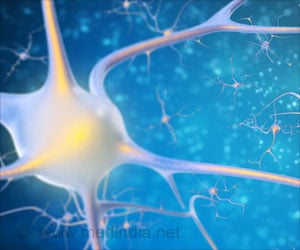World Multiple Sclerosis (MS) Day is observed globally on 30th May every year to raise awareness of multiple sclerosis, a demyelinating autoimmune neurological condition.
- World Multiple Sclerosis (MS) Day is formally identified on 30 May every year
- The day aims to raise awareness and campaign with everyone affected by multiple sclerosis (MS) and share their stories
- Multiple sclerosis leaves people to be affected with loneliness and social isolation
- The 2020-2022 theme for World MS Day is ‘Connections’ that focuses on a campaign about building community connection, self-connection, and connections to quality care
- MS connection thus formulates a timeline to support better services, celebrate support networks, and champion self-care
Read More..
What is Multiple Sclerosis?
Multiple sclerosis (MS) is a demyelinating autoimmune neurological condition that commonly affects the myelin sheath (outer fatty cover of nerves), brain, optic nerves, and spinal cord.It results in a range of incapacitating symptoms that differ from one person to another, such as unsteadiness, blurred vision, tingling sensations, memory problems, and fatigue.
The estimated predominance of MS is 2.8 million people of all ages globally, and someone is known to receive this life-altering diagnosis every five minutes. It is known to cause complete disability in about 60% of cases, 20 years after onset that renders major implications in the quality of their life and the financial cost to society.
Most people are diagnosed between the ages of 20 and 40 The exact causal mechanism is still unclear, with no complete cure of the disease. However, with progressing research, the disease management can be done when diagnosed at early stage.
MS Connections 2021
Multiple sclerosis leaves people afflicted with loneliness and social isolation. Thus, the World MS Day continues online with a theme for 2020-2022 being ‘Connections’, that focuses on the campaign about building community connection, self-connection, and connections to quality care by breaking down the social barriers.MS connection thus generates an opportunity to advocate for better services, celebrate support networks, and champion self-care.
The campaign tagline for 2021 is “I Connect, We Connect,” using the hashtag #MSConnections.
The global day welcomes people all across the world to post their stories (with #MSConnections) on social media and prompts them to join their hands in a “heart” formation to symbolize togetherness in photos and videos and apprehend the World MS Day happenings.
The History – World Multiple sclerosis Day
World Multiple Sclerosis Day was first launched by the MS International Federation and its members in 2009 to bring together multiple sclerosis (MS) community by featuring virtual events and social media happenings.A group of representatives from India, Tunisia, Ireland, Argentina, Slovakia, Spain, the U.K., Greece, Australia, and the U.S. are responsible for developing a new campaign every year to reach hundreds of thousands of people across the world.
A variety of angles and goals for the wide-ranging theme, such as bringing social barriers to light, building communities, encouraging self-care, healthy living, lobbying legislators, and connecting patients to research are encouraged by MS organizations and advocates.
The Multiple Sclerosis International Federation (MSIF) drove its first part of the Atlas of MS (3rd edition) that represents the growing prevalence of MS and the wide inequalities and barriers that exist globally in accessing diagnosis, disease-modifying therapies, and care.
Global MS Campaign
The different MS events draw the global MS community together and induct a drive towards a world free of MS on this World MS Day.Australia has launched its own animated short and events page with a yearly virtual fundraising challenge where participants can vouch to run 50 kilometers (31 miles) and raise money for the purpose.
In Finland, an online lecture, an MS remote cafe for young adults, a live Instagram, and a virtual concert by the Global MS Choir (May 30 – 9 a.m. EST) are planned to be streamed live on YouTube and Facebook by the Neuroliitto organization.
Other supporters for the World MS Day include Biogen, Bristol Myers Squibb, Janssen, Merck, Novartis, Roche, Sanofi Genzyme, and Viatris.
The campaign reinforces the people to
- Exert action
- Become an MS activist
- Connect online
- Stay informed
- State Action Day
- Donate
- And create opportunities in your community
Fact Sheet on Multiple Sclerosis
The World Health Organization (WHO) and the Multiple Sclerosis International Federation (MSIF) initiated a significant collaborative endeavor to resolve the global epidemiology of MS between 2005 and 2007among 112 countries, representing 87.8% of the world population.- Globally, the estimated prevalence of MS is reported to be 30 per 100 000 (with a range of 5–80) and greatest in high-income countries (89 per 100 000), followed by upper-middle (32), lower-middle (10), and low-income countries (0.5).
- Around 1 million are living with MS in the United States, as per the National MS Society study.
- The approximated 2010 prevalence of MS in the US adult population cumulated over 10 years was 309.2 per 100,000.
- The age of onset of MS symptoms is between 25.3 and 31.8 years with an average age being 29.2 years
- MS is reported to be 2-3 times more common in women than in men, inferring that hormones may also play an important role in defining susceptivity to MS.
- The frequency of MS varies by geographical region throughout the world, with more commonly affecting the areas farthest from the equator.
- MS is known to affect most ethnic groups, including African Americans, Asians, and Hispanics/Latinos. However, it is most common amongst Caucasians of northern European ancestry.
- Worldwide, more than three-quarters of countries face issues for early diagnosis of MS, and 7 out of 10 countries do not have access to disease-modifying therapies.
Diagnosis and Management of Multiple Sclerosis
Multiple sclerosis is a chronic inflammatory condition with impacts varying from cognitive impairment to significant physical disability and yet no complete cure.- Nevertheless, drugs are available to mitigate the course of the disease with symptomatic treatments and slow down the disease progression. This may augment the quality of life dramatically for those living with MS.
- It is thereby mandatory to identify the signs and symptoms of MS for early diagnosis and effective treatment.
- The McDonald Criteria are the most generally used diagnostic criteria in 66% of the countries followed by the Poser Criteria (31%) and the Schumacher Criteria (3%).
- Although there are diagnostic criteria available to establish the diagnosis, there is no particular 100% precise “positive or negative” diagnostic test for MS
- Thus the clinical diagnosis of MS is profoundly reliant on the skill of the neurologist in exerting and evaluating the patient’s medical history via neurological examination, and neuroimaging techniques like MRI.
- An individual encountering two temporally distinct neurological episodes characteristic of MS with compatible abnormalities on physical examination may validate the diagnosis of MS.
- The treatment modalities depend on the type of MS a person has, that is, for acute attacks, relapses and progression, management of symptoms, and rehabilitation.
- Drugs like oral steroids, disease-modifying drugs like injections of Interferon beta-1b, Interferon beta-1a, Glatiramer acetate, and Mitoxantrone are medically prescribed.
- There is also a broad variety of complementary (and alternative) therapies being used by people with MS with limited scientifically tested data to encourage their usage.
This World MS Day let's orient ourselves to help others better understand this complex and unpredictable disease, which serves as a critical fuel towards the progress of changing lives for people affected by MS and ultimately end the disease.
References:
- About World MS Day - (https://worldmsday.org/about/)
- WORLD MS DAY 2021 - (https://www.ms-society.ie/events/world-ms-day/world-ms-day-2021)
- Diagnosis and treatment of multiple sclerosis - (https://www.ncbi.nlm.nih.gov/pmc/articles/PMC1388131/)
- Who Gets MS? (Epidemiology) - (https://www.nationalmssociety.org/What-is-MS/Who-Gets-MS)
- Multiple Sclerosis Resources - (https://www.who.int/mental_health/neurology/Atlas_MS_WEB.pdf)
- The prevalence of MS in the United States - (https://n.neurology.org/content/92/10/e1029)
Source-Medindia
















